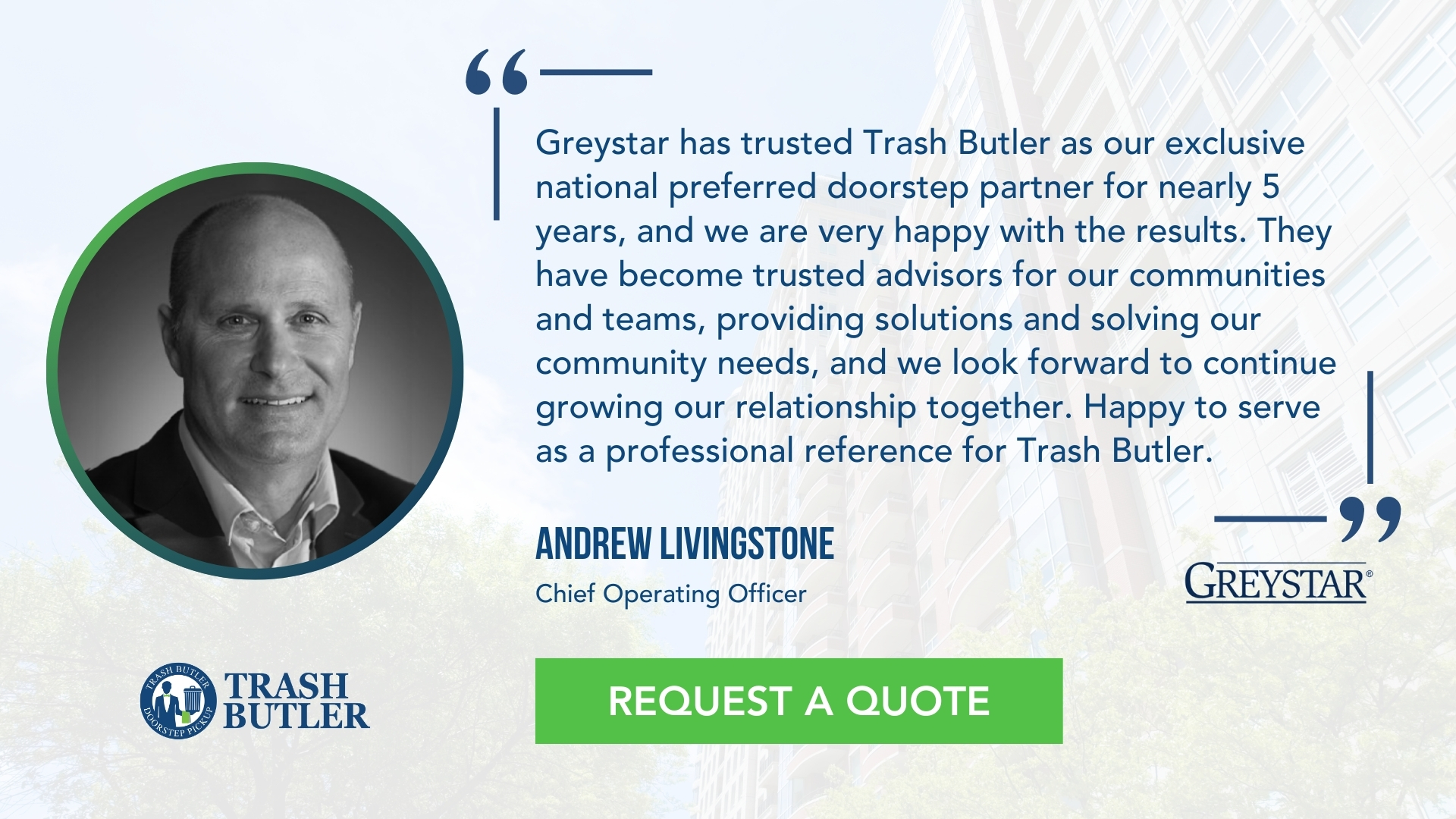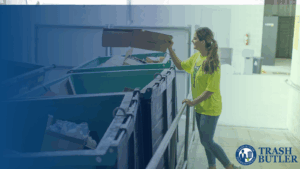Key Takeaways:
- Recycling Serves Multiple Facets Of Sustainability: Recycling is not just about waste management; it’s a critical strategy for conserving natural resources, saving energy, reducing pollution, and mitigating climate change. By transforming waste into valuable resources, recycling supports environmental conservation efforts and promotes a healthier planet.
- Economic And Social Benefits Complement Environmental Gains: Beyond its environmental impact, recycling drives economic growth through job creation in the recycling and manufacturing industries and stimulates community engagement and education on sustainability. It fosters a culture of responsibility and collective action, contributing to the overall well-being and development of communities.
- Challenges Require Collective Action And Innovation: While recycling faces challenges such as contamination, varying local guidelines, and economic viability, overcoming these obstacles is possible through education, improved infrastructure, and technological advancements.
Benefits To The Environment
Recycling is a crucial practice that benefits the environment and helps conserve natural resources. By collecting and processing materials like paper, plastics, glass, and metals to create new products, recycling plays a vital role in reducing waste, energy consumption, and greenhouse gas emissions. When we participate in effective trash recycling, we contribute to the preservation of our planet for future generations.
Resource Conservation
The process of recycling begins when we separate recyclable materials from our household waste. These materials are then collected by recycling facilities, where they are sorted, cleaned, and processed for manufacturing. By recycling, we can conserve resources like trees, water, and minerals used in the production of new goods. For example, recycling one ton of paper can save 17 trees, 7,000 gallons of water, and 3 cubic yards of landfill space.
Waste Reduction
In addition to resource conservation, recycling also helps reduce the amount of waste sent to landfills, which are major contributors to environmental pollution. When organic waste decomposes in landfills, it releases methane, a potent greenhouse gas that contributes to climate change. By diverting recyclable materials from landfills, we can mitigate these environmental impacts and work towards a more sustainable future.
Energy Conservation With Recycling
Recycling plays a vital role in conserving energy. Manufacturing products from recycled materials often requires less energy compared to producing them from scratch. In essence, the environmental impact of recycling is profound, and by incorporating recycling practices into our daily lives, we can contribute to a healthier planet for current and future generations.
Energy Savings From Recycling Processes
Aluminum Recycling
Recycling aluminum cans uses 95% less energy than creating new ones from raw materials. This energy conservation helps reduce greenhouse gas emissions. It also decreases our reliance on fossil fuels.
Paper Recycling
By recycling paper, we can save up to 65% of the energy needed to create paper from virgin wood pulp. The energy saved from recycling one ton of paper is enough to power the average American home for six months. Additionally, recycling paper helps preserve forests, which act as carbon sinks and play a critical role in combating climate change.
Plastic Recycling
Producing new plastic from recycled materials uses up to 75% less energy than creating plastic from raw materials. This reduced energy consumption translates to lower greenhouse gas emissions. It also results in less pressure on non-renewable energy sources.
Electronic Waste Recycling
Recycling electronic devices like smartphones and laptops not only prevents hazardous materials from ending up in landfills. It also allows for the recovery of valuable metals like gold, silver, and copper. By recycling these materials, we reduce the need for mining and processing new raw materials.
Corporate Responsibility In Waste Management
Corporate responsibility in waste management plays a crucial role in reducing the environmental impact of businesses. By implementing recycling programs and strategies, companies can contribute to the conservation of natural resources, energy savings, and the reduction of greenhouse gas emissions.
Cost Savings And Revenue Generation
Adopting efficient waste management practices can lead to cost savings for businesses. By recycling and reusing materials, companies can reduce waste disposal costs and potentially generate revenue from selling recycled materials. In addition, implementing sustainable waste management practices can improve a company’s reputation among consumers, employees, and stakeholders who value environmental stewardship and corporate social responsibility.
Employee Morale And Productivity
Furthermore, corporate responsibility in waste management can have a positive impact on employee morale and productivity. Engaging employees in recycling initiatives and sustainability efforts can boost employee satisfaction and pride in the company they work for. A culture of environmental responsibility within an organization can foster a sense of community and shared purpose among employees, leading to increased motivation and teamwork.
Overall, corporate responsibility in waste management is not only beneficial for the environment but also for business profitability, reputation, and employee engagement. By prioritizing sustainable waste management practices, companies can demonstrate their commitment to environmental stewardship and make a positive impact on the world around them.
Economic Benefits Of Recycling
Recycling not only helps the environment but also provides various economic benefits. One significant advantage is the creation of jobs in the recycling industry. As more and more materials are recycled, the demand for workers in recycling facilities, collection services, and manufacturing of recycled products increases. This can help boost local economies and provide employment opportunities for individuals in the community.
Consumer Behavior And Recycling
Consumer behavior plays a crucial role in the success of recycling efforts worldwide. By making more informed purchasing decisions, consumers can positively impact the environment by choosing products that are made from recycled materials or are easily recyclable themselves. When consumers opt for products with minimal packaging or packaging made from recycled materials, they are contributing to the reduction of waste.
Proper Disposal Practices
Moreover, consumer behavior also includes the proper disposal of products after use. By separating recyclable items from general waste and making use of designated recycling bins, individuals can ensure that recyclable materials are sent for recycling. This simple act can make a significant difference in reducing the environmental impact of waste disposal.
Education And Awareness
Educating about the benefits of recycling and the importance of proper waste management is key to changing consumer behavior. By raising awareness about the positive effects of recycling on the environment, individuals are more likely to adopt sustainable practices in their daily lives. Additionally, providing easy access to recycling facilities and offering incentives for recycling can further encourage consumers to participate in recycling programs.
Building A Sustainable Future
Ultimately, consumer behavior and recycling go hand in hand in creating a more sustainable future for our planet. By empowering individuals to make eco-friendly choices and reinforcing the importance of recycling, we can work towards minimizing waste generation, conserving natural resources, and reducing our carbon footprint.
The Path Forward In Recycling
Embracing Recycling As A Daily Habit
Moving forward, it is essential for both individuals and businesses to prioritize recycling. You can make it a daily habit. Simple actions such as separating recyclables from regular waste, using reusable products, and supporting recycling initiatives can make a significant impact on the planet’s health.
Government And Organizational Support
Furthermore, governments and organizations should continue to invest in recycling infrastructure. It’s important to continue improving recycling processes and educating on the importance of recycling. By creating a culture of sustainability and responsible consumption, we can pave the way for a greener and more sustainable future.
Collective Efforts For A Brighter Tomorrow
By collectively embracing recycling as a fundamental part of our lives, we can contribute to a cleaner and healthier planet. Every small effort counts towards making a big difference in the world we live in. Let’s take the necessary steps today to ensure a brighter tomorrow through recycling and sustainable practices.
Final Thoughts
In conclusion, the benefits of recycling are vast and impactful. By recycling materials such as plastics, paper, glass, and aluminum, we can conserve natural resources, reduce energy consumption, and decrease pollution levels. Recycling not only helps protect the environment by reducing greenhouse gas emissions and preventing the depletion of natural habitats but also plays a significant role in creating a more sustainable and circular economy.
Furthermore, recycling provides economic benefits by creating job opportunities in the recycling and waste management industries. It also helps in reducing the costs associated with waste disposal and landfill usage. Moreover, recycling helps to save energy by reducing the need to extract, refine, and process raw materials.
Individuals can make a difference by incorporating recycling practices into their daily lives, such as sorting recyclables, using eco-friendly products, and supporting businesses that prioritize sustainability. Education and awareness about the benefits of recycling are crucial in driving positive change towards a more environmentally conscious society.
As we continue to face challenges related to climate change and environmental degradation, recycling emerges as a simple yet powerful solution that each one of us can contribute to. Request a Trash Butler quote today!
Frequently Asked Questions
How does recycling benefit the environment?
Recycling plays a crucial role in protecting the environment by minimizing the need for raw material extraction, thus conserving natural resources, and reducing habitat destruction and water and air pollution.
Are there economic benefits to recycling?
Yes, recycling drives economic benefits by fostering a sustainable industry, creating jobs in the recycling and manufacturing sectors, and encouraging innovation in recycling technologies and materials management.
How does recycling reduce pollution?
Recycling significantly reduces pollution by cutting down on the amount of waste sent to incinerators and landfills, which are major sources of air and ground pollution. Additionally, it lessens the environmental impact of extracting, refining, and processing raw materials.
Can recycling help combat climate change?
Recycling can help mitigate climate change by decreasing greenhouse gas emissions. Manufacturing products from recycled materials generally consumes less energy compared to producing them from virgin materials, which in turn reduces carbon dioxide and other harmful emissions.
How does recycling save energy?
Recycling saves energy by reducing the need to extract, transport, and process raw materials, all of which are energy-intensive steps. The energy saved can then be used for other economic activities, contributing to more efficient and sustainable energy use.
What is the impact of recycling on wildlife?
Recycling benefits wildlife by reducing the need to disturb their habitats for mining or logging activities. It also decreases the likelihood of animals coming into contact with and being harmed by waste.
How does recycling reduce landfill waste?
By diverting materials from landfills, recycling helps reduce the amount of waste deposited, thus preserving land and reducing the release of methane—a potent greenhouse gas—produced when organic waste decomposes in landfills.
What are the social benefits of recycling?
The social benefits of recycling include fostering community participation and responsibility towards environmental conservation, promoting sustainable lifestyle choices, and improving public health by reducing pollution.
How does recycling create jobs?
Recycling contributes to job creation across its value chain—from collection to processing and converting recyclables into new products, providing employment opportunities in both the public and private sectors.
Can recycling help with resource conservation?
Yes, recycling aids in conserving resources by ensuring that valuable materials such as metals, paper, and plastics are reused and remade into new products, thus reducing the demand for virgin resources and ensuring a more sustainable use of our planet’s finite resources.







